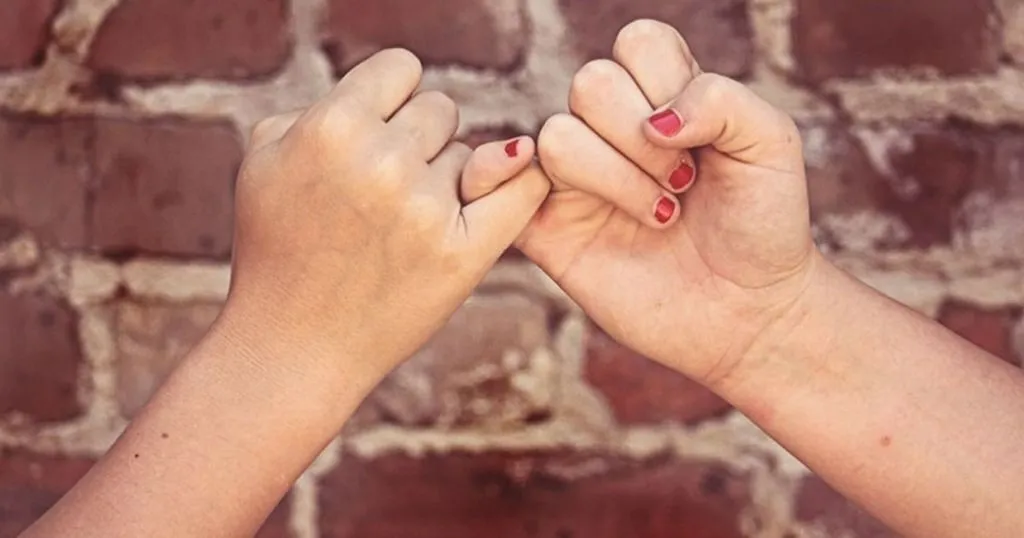The emotions of people who think they’re nice
What does ‘nice’ actually mean in relation to psychological variables? And does it positively correlate with self-reported levels of health, happiness, and wellbeing?
Posted by
Published on
Tue 18 Jul. 2017

The word ‘nice’ is a commonly used word. We encounter it on a daily basis when we want to make clear that something or someone is positive in our opinion. ‘That was a very nice meal, ‘We had a nice conversation, ‘What a nice boy…’ we use it frequently and easily, and we all understand its meaning.
Do people find themselves nice?
But what does ‘nice’ actually mean in relation to psychological variables? And does it positively correlate with self-reported levels of health, happiness, and wellbeing? Researchers of i2 media research from the Goldsmiths University of London, UK, developed a tailored questionnaire to explore this.
Being nice in everyday life
The British researchers presented 100 participants with a list of ‘nice’ behaviors and asked them to rate themselves. Which ‘nice’ things for others, such as ‘giving directions to a stranger,’ ‘helping someone carry heavy bags,’ and ‘donating blood’ had they done and which had they not? It turned out that nice people are more likely to do nice things for others than those who rated themselves as less nice.
Also, nicer people reported being happier, relaxed, healthier, and more fulfilled in their careers. They scored higher on emotional intelligence, which describes how well a person is able to understand the emotions of others, recognize their own, and label feelings appropriately.
The research team found out that 98 percent of the participants think they are part of the nicest 50 percent of the population. Clearly, that is not possible. More than half of the participants who rated themselves as the second-highest level of nice scored below the sample average on the questions about kindness in the questionnaire. So, some of them think they are nicer than they really are.
What if someone is rude to you?
People cannot always be nice. In some situations and contexts, you tend to forget that you want to be nice. For example, this often occurs in situations like when someone else is rude to you, which was found to be the biggest trigger, or when you’ve just find out that your keys are missing, or when you’re frustrated that the bus is late. Participants were asked to report what makes them ‘lose their nice.’
An interesting finding was that people who rated themselves as ‘very nice’ or ‘quite a bit nice’ were less likely to report that some of these situations or events would trigger them to lose their nice. Apparently, they deal with stress and criticism better than others. They are better able to control the chaos of everyday life.
Facial expressions matched
Out of the 100 participants, the researchers selected 10 people for a lab based demonstration. They were asked to watch a selection of videos with positive and negative scenes, including overcrowded underground stations, crying children, and scenarios such as interviews or exams.
The second tasks was to listen to an aversive sound played at a high volume for as long as possible. Meanwhile, their facial expressions were measured with FaceReader. Professor Freeman, who led the study, finds FaceReader very handy: “It analyzes frame by frame the expressions and how they vary on people’s faces. So you capture even micro expressions that people don’t have control over.”
Negative facial expressions, indicating stress, were clearly visible in participants’ reactions to the stimuli. However, as expected, nice people showed fewer negative emotions.
RESOURCES: Read more about FaceReader
Find out how FaceReader is used in a wide range of studies and how it can elevate your research!
- Free white papers
- Customer success stories
- Featured blog posts
Reference
Ferrari, E.; Freeman, J. (2017). The power of nice: A study exploring the relationship between participant ratings of how ‘nice’ they are, their behavior, and their reported levels of health, happiness and success. i2 media research, research report on behalf of Monarch.
Related Posts

Measuring the intensity of emotional response to political advertisement videos

Why you want to find out if your customers are bored
